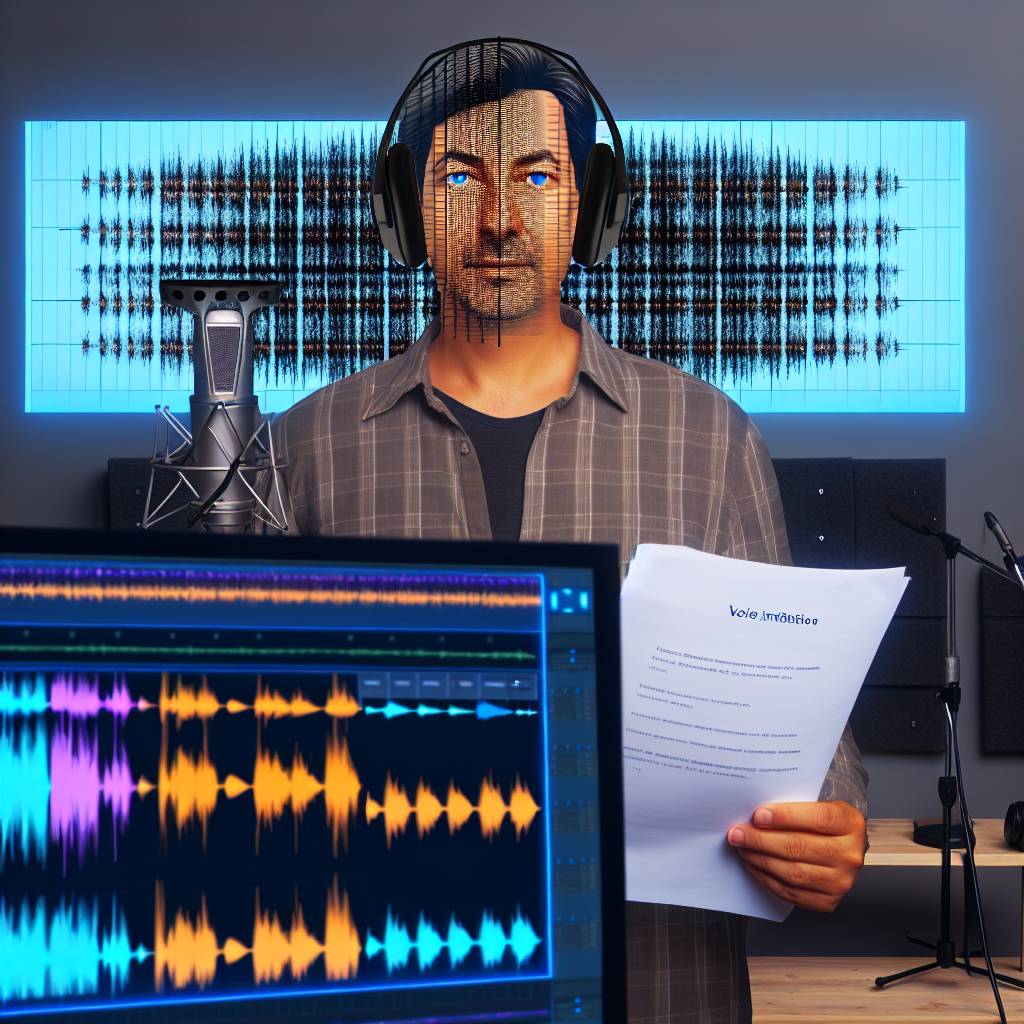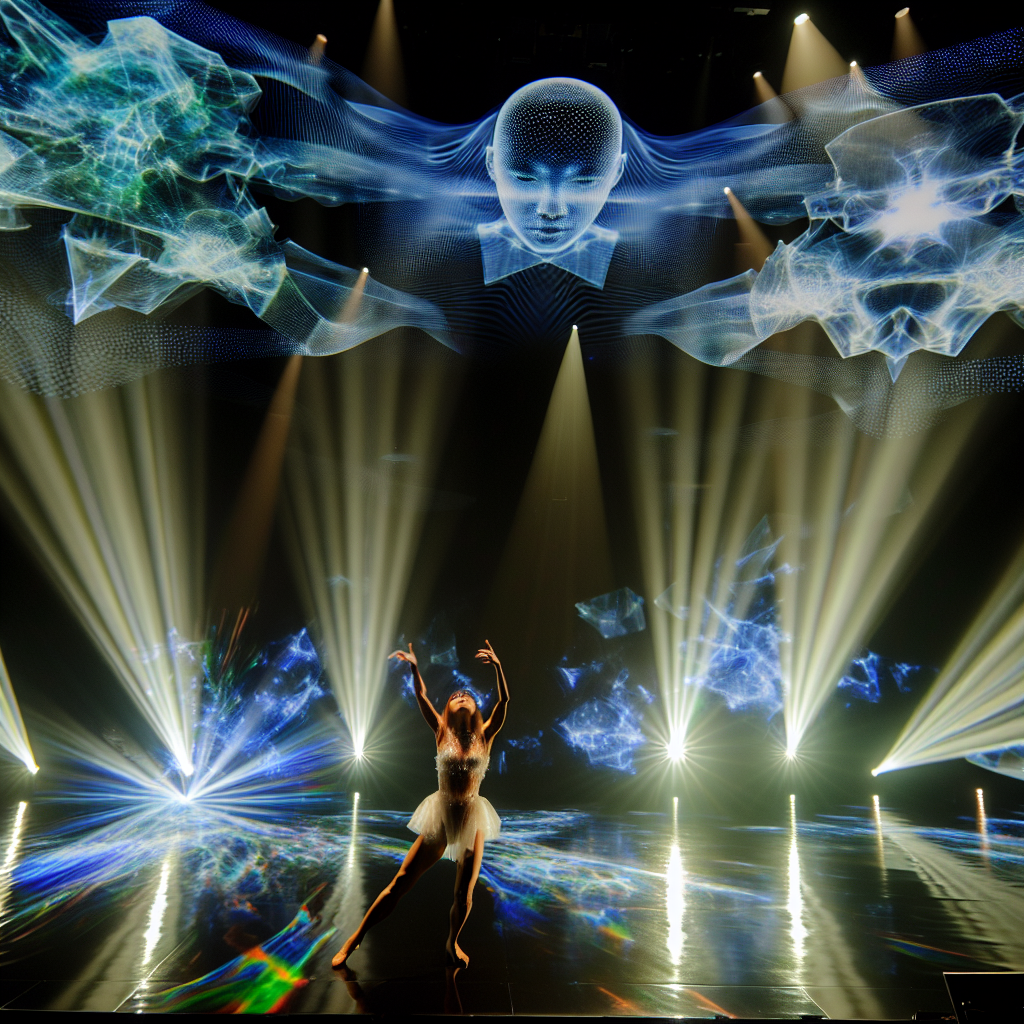Introduction
Let’s explore music composition software for aspiring composers in 2024 & 2025
Overview of the rise of digital tools in music composition.
In recent years, digital tools have transformed music composition.
Composers can now create intricate pieces with advanced software.
Music composition software has made composing accessible to everyone.
Importance of choosing the right software for aspiring composers
The right software significantly impacts an aspiring composer’s workflow.
Choosing the wrong tool can hinder creativity and productivity.
A well-matched program can enhance your musical ideas and streamline the creative process.
A glance at what the blog will cover regarding current trends and software options
This blog will explore current trends in music composition software.
We will discuss various options available in 2024 and 2025.
You’ll learn about features essential for aspiring composers, including user interface and functionality.
As technology advances, staying updated is crucial for any composer.
New software often introduces innovative features that improve music creation.
These developments can inspire ambition and elevate your compositions to new heights.
Understanding your unique style is essential when selecting software.
Different programs cater to various genres and workflows.
Whether you compose classical, electronic, or pop music, there’s software tailored for you.
This blog will highlight popular software tools in the market.
We will review their strengths and weaknesses.
Learning about these options empowers composers to choose wisely.
Additionally, we’ll examine community resources that enhance software usability.
Online tutorials and forums can aid in mastering these tools.
Connecting with fellow composers fosters collaboration and learning opportunities.
Finally, we will address the future of music composition software.
Anticipating upcoming trends can help you stay ahead.
Embracing new innovations and adapting to change will define successful composers.
In summary, choosing the right music composition software matters significantly.
With the proper tools, aspiring composers can thrive in this digital age.
Join us as we delve deeper into the exciting world of music creation in the coming years.
The Evolution of Music Composition Software
Over the past decade, music composition software has seen remarkable evolution.
This transformation not only revolutionized how composers work but also enriched the entire music creation landscape.
Let’s trace the timeline of significant developments that have shaped modern music composition tools.
A Timeline of Significant Developments
- 2012: The rise of cloud-based software began. Composers could access their projects from any device, anywhere.
- 2014: Software like Ableton Live and FL Studio released major updates, enhancing MIDI capabilities and integration with hardware.
- 2016: The launch of AI music composition tools like Amper Music allowed for automated composition, paving the way for innovation.
- 2018: Music notation software, such as Dorico, introduced features that improved user experience and playback realism.
- 2020: A surge in remote collaboration tools emerged as artists adapted to the global pandemic. Programs like Soundtrap gained traction.
- 2022: Major software upgrades introduced AI-driven plugins, allowing composers to generate unique sounds and ideas with ease.
- 2024: The incorporation of virtual reality (VR) in music production environments began. This technology offers immersive experiences for users.
The Transition from Traditional Methods to Digital Platforms
Music composition has always thrived on creativity and expressiveness.
However, traditional methods presented many challenges.
Composers historically relied on paper and pencil, which restricted their immediate access to sound.
With the advent of digital platforms, composers found a wealth of benefits.
We Design & Develop Websites, Android & iOS Apps
Looking to transform your digital presence? We specialize in creating stunning websites and powerful mobile apps for Android and iOS. Let us bring your vision to life with innovative, tailored solutions!
Get Started Today- Accessibility: Digital composition software enables musicians of all levels to start creating music quickly.
- Instant Playback: Composers can hear their ideas in real time, fostering creativity and spontaneity.
- Endless Possibilities: Access to vast libraries of sounds, instruments, and effects expands creative horizons.
- Collaboration: Digital platforms facilitate collaboration with other musicians without geographic constraints.
- Cost-Effectiveness: Many music software options provide affordable pricing models, making music creation accessible for aspiring composers.
This transition encouraged many passionate musicians to embrace new technologies.
Aspiring composers no longer face the challenges of expensive recording studios or complex equipment setups.
Instead, they can produce high-quality music from their laptops.
Many successful artists now craft hits from home studios equipped only with personal computers and headphones.
How Technology Has Democratized Music Composition
Technology has vastly democratized music composition.
This democratization means that anyone can discover their musical voice and express their creativity.
Several factors contribute to this transformative change.
- Affordability: More accessible digital tools lower the barrier to entry for emerging musicians.
- Social Media: Platforms like SoundCloud and Bandcamp allow artists to share and promote music without traditional gatekeepers.
- Online Tutorials: A wealth of resources and tutorials empower budding composers to learn and improve skills at their own pace.
- Community: Online forums and groups foster connections among musicians, allowing for idea sharing and encouragement.
- Independence: Independent artists can now build their careers without reliance on record labels or commercial studios.
The accessibility of music composition software also enables diverse voices to emerge.
Artists from various backgrounds share their unique perspectives, enriching the global music scene.
As new technologies continue to evolve, the landscape becomes increasingly inclusive.
Key Features of Modern Composition Software
Today’s music composition software incorporates an array of features catering to both novice and experienced musicians.
Here are some of the key functionalities shaping modern tools:
- MIDI Editing: Advanced MIDI editing features allow for intricate musical arrangements and manipulations.
- Virtual Instruments: Users can access high-quality virtual instruments that accurately emulate real instruments.
- Loop Libraries: Pre-recorded loops give composers a palette of sounds to work creatively.
- Notation Tools: Integrated notation capabilities allow for standard music writing seamlessly within the software.
- AI Assistance: AI-powered features provide creative suggestions for melodies or arrangements, enhancing productivity.
Looking Ahead: The Future of Music Composition Software
The future of music composition software promises exciting developments.
Innovations on the horizon will further empower aspiring composers.
Here are some anticipated advancements:
- Enhanced AI Integration: Composers can expect AI to play an even larger role in personalized composition assistance.
- Realistic Sound Libraries: Immersive sound libraries will continue evolving, offering even more authentic instrument emulations.
- Seamless Integration: Improved compatibility with hardware and software will allow for a smoother workflow.
- User-Centric Design: Software will prioritize user experience, making it easier for new users to navigate effectively.
- Cross-Platform Collaboration: As remote work becomes commonplace, features facilitating collaboration across different platforms will become essential.
Therefore, the evolution of music composition software reflects the changing needs and desires of composers.
As technology continues to advance, aspiring musicians will find themselves equipped with increasingly powerful tools.
This accessibility will foster innovation and creativity, ensuring the future of music remains bright and diverse.
Read: Voice Recognition Software Transforming Podcasts for Content Creators
Key Features to Look for in Composition Software
Choosing the right music composition software is crucial for aspiring composers.
The right tools can significantly enhance creativity and efficiency.
Here are the key features you should consider when selecting software in 2024 and 2025.
Intuitive User Interface and Workflow Efficiency
An intuitive user interface is essential for productivity.
You want software that minimizes the learning curve.
A cluttered interface can lead to frustration.
Look for programs that offer customizable layouts.
A friendly design fosters creativity and inspires exploration.
Efficiency also plays a vital role in your workflow.
Features like drag-and-drop functionality simplify arranging music.
Keyboard shortcuts accelerate the composing process.
Additionally, tooltips and tutorials can guide you through complex features.
Availability of Virtual Instruments and Sound Libraries
Virtual instruments enrich your compositions by providing diverse sounds.
Having a wide range of instrument options is invaluable.
Look for software that includes built-in instrument libraries.
Top-notch sound quality makes a significant difference in your work.
We Design & Develop Websites, Android & iOS Apps
Looking to transform your digital presence? We specialize in creating stunning websites and powerful mobile apps for Android and iOS. Let us bring your vision to life with innovative, tailored solutions!
Get Started TodayMany programs offer additional sound libraries for purchase or download.
This flexibility allows you to expand your sonic palette.
You can also seek out software that allows third-party instrument integrations.
Versatile sound libraries can inspire new musical ideas.
MIDI Capabilities and Notation Features
MIDI (Musical Instrument Digital Interface) capabilities are crucial for most composers.
Reliable MIDI input and output features allow for seamless connections with MIDI controllers.
This connectivity enhances your ability to create and manipulate music.
Look for software with advanced MIDI editing features.
These may include quantization, velocity adjustments, and more.
Notation features also hold significant importance for composers.
Scores can help you share your music with performers effectively.
Software that excels in notation enables easy transcriptions.
You may wish to print scores or export them as PDFs.
A combination of MIDI and notation capabilities maximizes your overall composition experience.
Collaborative Tools or Cloud Functionality
Collaboration is a key aspect of modern music production.
Look for software that supports collaborative tools.
Features such as real-time editing and sharing enhance teamwork.
You and your collaborators can work on projects seamlessly, regardless of location.
Cloud functionality is becoming increasingly popular.
Storing your compositions in the cloud offers flexibility.
You can access your files from any device, anywhere.
This convenience is especially beneficial for composers who travel frequently.
Additionally, cloud features can facilitate backup and version control.
With automatic backups, you can protect your creative work effectively.
A reliable system for tracking changes ensures you never lose your progress.
Support for Various File Formats and Integration with Other Software
Support for various file formats is essential for versatility.
Your music composition software should allow MIDI, WAV, and MP3 file exports.
Compatibility ensures you can share your work with musicians and producers easily.
Integration with other software tools enhances your creative workflow.
Look for compatibility with digital audio workstations (DAWs).
Programs that integrate seamlessly with video editing software can allow you to score films or games quickly.
Consider looking for VST (Virtual Studio Technology) support.
This enables you to use external plugins that can enrich your sound palette.
Such flexibility can elevate your compositions to new heights.
Final Thoughts
Investing in the right music composition software can dramatically impact your creative output.
We Design & Develop Websites, Android & iOS Apps
Looking to transform your digital presence? We specialize in creating stunning websites and powerful mobile apps for Android and iOS. Let us bring your vision to life with innovative, tailored solutions!
Get Started TodayAn intuitive interface, robust feature set, and collaborative capabilities are key aspects.
Make sure to weigh these features according to your personal needs.
In a fast-evolving industry, aspiring composers must stay informed.
Keep an eye on advancements in software technology as 2024 and 2025 unfold.
Attend workshops and follow online forums for the latest insights and tips.
The right software can serve as your canvas, enabling your musical ideas to flourish.
Embrace technology to amplify your creativity and witness your compositions come to life.
Whether you’re producing a symphony or a pop hit, having the right tools will empower you to express your artistic vision.
Read: AI-Powered Animation Software for Indie Filmmakers in 2024 & 2025
Top Music Composition Software Options for 2024 & 2025
As aspiring composers navigate the vast landscape of music production, they benefit significantly from utilizing effective software.
In 2024 and 2025, various music composition software options dominate the market.
Each option addresses unique needs, enabling composers to find the right fit for their projects.
Below, we explore detailed reviews of top music composition software that can aid in enhancing creative expression and productivity.
Ableton Live
Ableton Live stands out for its exceptional capabilities in live performance and electronic music production.
This software delivers an intuitive interface, which emphasizes performance and experimentation.
The Session View allows users to arrange and manipulate audio clips seamlessly.
This feature is particularly beneficial for those involved in electronic music genres.
- Live Performance Optimizations: Ableton Live is tailored for live musicians. Its ability to manipulate sounds in real time holds immense appeal.
- Extensive Library of Sounds: The included library features a plethora of sounds, instruments, and samples to inspire creativity.
- Collaboration Features: Users can collaborate seamlessly with others, making it a fantastic choice for group projects.
- Max for Live Integration: This optional add-on opens the door for creating custom instruments and effects, expanding sonic possibilities.
With these features, Ableton Live becomes a cornerstone for many aspiring composers who wish to explore live performance aspects.
Its effectiveness in electronic music keeps it relevant and popular among creators.
Logic Pro X
Logic Pro X serves as the go-to software for Mac users.
Apple’s flagship composition tool blends powerful features with an easy-to-navigate interface.
The software includes a comprehensive suite of virtual instruments and loops, ideal for various music styles.
- Rich Audio Recording Capabilities: This software excels in high-quality audio recording, making it suitable for professional use.
- User-Friendly Interface: The layout is intuitive, allowing beginners to transition smoothly into effective usage.
- Comprehensive Educational Resources: Logic Pro X offers abundant tutorial material, fostering learning and skill development.
- Enhanced MIDI Capabilities: Music producers find exceptional MIDI support, offering immense flexibility in composing.
For composers focusing on a wide array of genres, Logic Pro X provides the strength needed to meet professional standards without overwhelming new users.
FL Studio
FL Studio continues to gain popularity, particularly among beginner and intermediate users.
Its affordability makes it accessible while delivering robust features.
The software provides a user-friendly layout that helps new users focus on creativity over technicality.
- Step-Sequencer Grid: The intuitive step-sequencer grid allows for straightforward beat-making and arrangement.
- VST Plugin Support: Users can incorporate third-party VST plugins, expanding sound design options significantly.
- Lifetime Free Updates: Purchasing FL Studio guarantees users ongoing updates, preserving the software’s relevance.
- Active User Community: The thriving community offers forums for collaboration and assistance, enhancing the learning curve.
FL Studio remains a fantastic option for those new to music production yet eager to explore complex projects.
Its features support a wide range of creative styles from electronic to hip-hop.
MuseScore
MuseScore serves as a powerful free notation software perfect for budding composers.
It provides an excellent introduction to music composition through its accessible design and robust features.
Users can easily compose, arrange, and share their scores.
- User-Friendly Notation: MuseScore allows users to effortlessly write music using a key and note interface.
- Community Sharing Platform: Composers can share their scores with the MuseScore community, fostering collaboration and feedback.
- Extensive Instrument Library: The software supports numerous instruments, allowing for versatile compositions.
- Integration with MIDI Devices: Users can integrate MIDI devices for enhanced composing and playback experiences.
This free-to-use software offers budding composers a perfect starting point to explore music notation and composition.
Its community-oriented approach encourages feedback and development.
Notion
Notion combines scoring and playback seamlessly, providing a unique approach to music composition.
The software incorporates advanced playback features that allow composers to hear their compositions live as they create.
We Design & Develop Websites, Android & iOS Apps
Looking to transform your digital presence? We specialize in creating stunning websites and powerful mobile apps for Android and iOS. Let us bring your vision to life with innovative, tailored solutions!
Get Started Today- Realistic Playback: Notion offers high-quality instrument sounds, enhancing users’ experience as they compose.
- Touch-Friendly Interface: The interface supports touch technology, offering flexibility for tablet users.
- Integration with PreSonus Studio One: Users enjoying both Notion and Studio One benefit from improved workflow and integration.
- Sheet Music Creation: The software allows composers to create professional-quality sheet music effortlessly.
Notion’s innovative features make it an appealing choice for composers who value realistic playback and advanced notation capabilities.
Its attention to detail ensures a polished composition experience.
In fact, the options available in music composition software for 2024 and 2025 are diverse and targeted toward different user needs.
Whether you are looking for affordability, extensive features, or specific functionalities, there is a software tailored just for you.
From aspiring composers to more experienced users, these tools aid in expressing creativity, collaborating with others, and producing high-quality music.
As the landscape of music production continues to evolve, embracing these software tools can amplify the musical vision for many artists moving forward.
Read: Streaming Analytics: Tracking Trends in 4K Movie Consumption

Pricing Models and Accessibility
When it comes to selecting music composition software, aspiring composers face a significant decision: pricing models and accessibility.
Different software options come with varied financial commitments.
Knowing the best fit for your needs makes all the difference in launching or advancing your musical career.
Overview of Varying Pricing Structures
Music composition software typically adopts one of two primary pricing models:
- One-Time Purchase: Users pay a single fee upfront. This model provides lifetime access to the software. You won’t incur additional costs, unless you want to upgrade to a new version.
- Subscription Models: Users pay a regular fee, often monthly or annually. This model grants continuous access to the latest software updates and features.
However, costs accumulate over time, leading to higher total expenditure compared to one-time purchases.
Each model has pros and cons.
One-time purchases often cater to composers wanting a long-term solution without recurring fees.
They typically feature robust functionality.
However, they might lack the latest updates without a paid upgrade.
On the other hand, subscription models benefit those who prefer staying current.
Users gain access to the latest tools and functionalities without needing to buy new versions.
This flexibility can be advantageous, especially for amateur and professional composers who need to adapt quickly to musical trends.
Discussion of Free and Open-Source Options
Many aspiring composers explore free and open-source music composition software.
These tools provide excellent starting points for individuals without substantial budgets.
They often come with the following characteristics:
- Affordability: Free options eliminate financial barriers, encouraging experimentation and creativity.
- Community Support: Open-source platforms foster communities where users exchange tips, share projects, and offer solutions.
- Customizability: Users can modify open-source software according to their needs, leading to unique applications tailored to specific genres or styles.
While free and open-source tools hold significant advantages, they also present challenges.
Users might face a steeper learning curve compared to established commercial products.
Additionally, some open-source options may lack the extensive features found in commercial software, making them less appealing for serious compositional work.
Financial Considerations for Student Composers or Hobbyists
For student composers or hobbyists, financial considerations play a critical role in choosing the right software.
Here are several essential factors to evaluate:
- Budget Constraints: Students and hobbyists often operate on limited budgets. Assessing the total cost, including add-ons or upgrades, becomes crucial.
- Value for Money: Every option should provide sufficient features to justify its cost. Comparing tools ensures you select the best value for your investment.
- Trial Versions: Many software companies offer trial versions. Testing these can help evaluate functionality before committing financially.
- Student Discounts: Some companies provide discounts for students. Researching and applying these discounts opens possibilities for high-quality software at reduced prices.
- Future Career Goals: Consider whether the investment aligns with your long-term aspirations. If composition is a career goal, investing in robust software pays off.
For many aspiring composers, choosing the right music software is not just about initial pricing.
It involves understanding the long-term implications and future scalability of the software.
Analyze your current needs and envision how those might evolve as your skills advance.
Recommendations for Aspirants
To clarify your path, consider these recommendations while navigating the options:
- Identify Your Needs: Determine which features are vital for your style. Think about MIDI compatibility, score notation, or audio editing capabilities.
- Engage with Communities: Online forums, social media groups, and local music classes offer valuable insights. Tap into shared experiences to better inform your choice.
- Follow Trends: Stay informed about new releases, trends, and software updates. Subscribing to relevant blogs or YouTube channels can aid in making informed decisions.
- Seek Tutorials: Spend time learning how to use the software effectively. There are many online tutorials that can enhance your understanding.
Ultimately, aspiring composers should evaluate their financial situation and software needs thoroughly.
Understanding the pricing models, exploring free options, and assessing overall value leads to informed decisions.
By considering these elements, aspiring composers can make sound investments in their music composition software, enabling them to unleash their creativity and fully realize their potential.
The right software fosters innovation, creativity, and artistic expression.
By analyzing pricing structures and accessibility, you empower yourself to choose wisely.
We Design & Develop Websites, Android & iOS Apps
Looking to transform your digital presence? We specialize in creating stunning websites and powerful mobile apps for Android and iOS. Let us bring your vision to life with innovative, tailored solutions!
Get Started TodayLaunch your journey with confidence, knowing that you have laid a solid foundation for your musical ambitions.
Read: Augmented Reality: Elevating Concert Experiences Worldwide
Community and Support Resources
Music composition can be a challenging journey for aspiring composers.
However, surrounding yourself with the right community and support resources can make a significant difference.
Engaging with fellow composers enhances your learning experience and helps foster relationships that can propel your career.
Below, we delve into the importance of community forums, abundant online tutorial resources, and comprehensive documentation to aid your composing efforts.
Importance of Community Forums
Community forums serve as invaluable platforms for music composers.
They provide a space for sharing ideas, seeking feedback, and offering support.
Here are a few reasons why these forums are essential:
- Access to Knowledge: Experienced composers often share their insights. You can learn industry secrets and tips that help elevate your craft.
- Inclusive Environment: Forums create a welcoming environment. You can comfortably ask questions, regardless of your skill level.
- Networking Opportunities: Engaging in discussions can lead to vital connections. Collaborating with other musicians can open doors to new projects.
- Feedback and Critique: Receiving constructive feedback is beneficial. It helps you refine your compositions and grow as a musician.
Online Tutorial Resources
With the rise of technology, online tutorial resources have become abundant.
These resources cater to a wide array of learning preferences.
Here is a list of popular online platforms where you can acquire music composition skills:
- YouTube: Numerous channels provide free tutorials. You can find everything from beginner lessons to advanced techniques.
- Coursera: Offers structured courses from universities. You can learn at your own pace, with assessments to enhance your understanding.
- Skillshare: This platform features many courses for creative projects. You can engage in hands-on projects that solidify your knowledge.
- Berklee Online: Offers professional-level courses in music composition. You gain insights from industry professionals and seasoned educators.
Documentation and Guides
Understanding the software you use is crucial.
Comprehensive documentation and guides can streamline your workflow.
Here’s why well-structured documentation is indispensable:
- Quick Reference: Manuals provide quick solutions to technical issues. You can quickly refer to documentation whenever you face challenges.
- Step-by-Step Instructions: Detailed guides lead you through complex processes. Learning how to use advanced features becomes more manageable.
- Updates and New Features: Documentation often contains information about updates. You stay informed about new functionalities and enhancements.
Highlight of Popular Composer Communities Online
Many online communities foster collaboration and discussion among composers.
Here are some popular platforms where you can engage with like-minded individuals:
- Reddit: Subreddits like r/composer and r/musicians welcome new members. You can post your compositions for feedback and browse valuable resources.
- Facebook Groups: Numerous groups cater to music composers. Joining these groups allows you to connect with others and share resources.
- Discord Servers: Many servers focus on music composition. You can join live discussions, voice chats, or even collaborate on projects in real time.
- SoundCloud: This platform allows you to share your music. You can connect with other composers and listen to diverse styles.
Availability of Lessons and Professional Support Services
In addition to community support, various resources equip you with professional guidance.
Many platforms offer lessons, mentorship, and professional services tailored to composers:
- One-on-One Coaching: Many experienced composers offer personalized coaching. You can receive tailored advice that targets your specific needs.
- Workshops and Masterclasses: Interactive events expose you to new skills. They are often hosted by industry leaders, bringing fresh insights.
- Online Composition Courses: Platforms like MasterClass feature renowned composers teaching their approach. You gain insights from industry veterans.
- Music Production Services: Some companies offer support in mixing and mastering. Professional input can significantly improve your work quality.
In essence, engaging with community and support resources is vital for aspiring composers.
From forums and online tutorials to professional support services, a wealth of options awaits you.
Embrace these opportunities, and you will find yourself growing as a composer.
Connecting with other musicians enhances your skills and broadens your perspective.
Utilize these resources to turn your musical dreams into reality.
Future Trends in Music Composition Software
The music composition software landscape is dynamic, rapidly evolving to meet changing needs.
As we look ahead to 2024 and 2025, several trends are poised to reshape how aspiring composers create and produce music.
This section explores these emerging trends, which include the influence of artificial intelligence (AI), advancements in virtual reality (VR), and the growing need for cross-platform functionality.
The Influence of AI on Music Composition
Artificial intelligence is already making waves in many industries, and music composition is no exception.
The use of AI-powered tools for composition is expected to multiply in the coming years.
Here are some significant predictions regarding AI and music composition:
- Enhanced Creativity: AI tools will assist composers in generating new melodies, harmonies, and arrangements.
These tools will analyze existing music and suggest fresh ideas, thereby enhancing creativity. - Real-Time Collaboration: AI will facilitate real-time collaboration among composers, musicians, and producers, even from different geographical locations.
This capability will foster global creative partnerships. - Personalized Recommendations: AI algorithms will curate music samples tailored to a composer’s style. This customization will help composers discover sounds that align with their artistic vision.
- Automated Arranging and Orchestration: AI can analyze compositions and automatically orchestrate them for various instruments.
This will save time for composers by alleviating the burdens of orchestrating their music. - Adaptive Music Composition: Future AI tools may enable dynamic scoring, allowing compositions to adapt in real time to different media, such as video games or films.
This adaptability will provide experiences tailored to the listener’s interactions.
Advancements in Virtual Reality and Immersive Sound Environments
As technology evolves, so do the methods of experiencing music.
The implementation of virtual reality in music composition is gaining traction.
Here’s how VR is expected to enhance the compositional process:
- Immersive Composition Spaces: Composers can develop and manipulate their music in fully immersive environments.
These spaces will simulate various soundscapes, enabling a more profound understanding of the spatial dynamics in music. - Interactive Experiences: VR will allow composers to create interactive musical experiences. Users will participate actively in these experiences, shaping the music in real time.
- Increased Collaboration: Composers from around the world can join VR environments to create music together.
These shared spaces will break down geographical barriers and enhance creative synergy. - Enhanced Learning Tools: Virtual reality can serve as an educational platform for aspiring composers, offering simulations of complex orchestration and arrangement techniques.
- Expanded Auditory Perception: VR promises to provide an enhanced auditory experience.
Composers will be able to visualize sounds, making it easier to understand harmonic relationships and sound layering.
The Rising Importance of Cross-Platform Functionality
With the proliferation of mobile devices, cross-platform compatibility will become increasingly important.
Composers will expect a seamless experience across various platforms.
We Design & Develop Websites, Android & iOS Apps
Looking to transform your digital presence? We specialize in creating stunning websites and powerful mobile apps for Android and iOS. Let us bring your vision to life with innovative, tailored solutions!
Get Started TodayHere are some predictions concerning cross-platform functionality:
- Universal Access: Composers will demand music composition software that works on both desktop and mobile devices.
The ability to switch between devices seamlessly will become a standard requirement. - Cloud Integration: The use of cloud-based services will rise. Composers can store and access their projects from anywhere, facilitating greater flexibility in the composition process.
- Version Control: Improved version control will provide composers with a safety net while experimenting with different ideas.
This feature will make it easier to track changes and revert if needed. - Synchronization with Other Software: Music composition software will increasingly incorporate features to sync with other digital audio workstations (DAWs) and plugins.
This capability will allow for a more versatile creative process. - Mobile-First Design: Developers will prioritize mobile-specific features. Software that accommodates touch interfaces and enables composing on the go will gain immense popularity.
The next few years will see remarkable shifts in music composition software.
The influence of AI, advancements in VR, and the need for cross-platform functionality will reshape the creative process for aspiring composers.
Embracing these trends will not only enhance individual creativity but will also foster collaboration among artists worldwide.
By keeping an eye on these developments, composers can prepare themselves to leverage these powerful tools and remain at the forefront of musical innovation.
Ultimately, the future of music composition will be richer, more varied, and more universally accessible than ever before.
Conclusion
Recap of the software options discussed and their relevance to aspiring composers
In this blog post, we examined several music composition software options tailored for aspiring composers in 2024 and 2025.
We explored powerful tools like Ableton Live, Logic Pro X, and FL Studio.
Each software offers unique features and capabilities that cater to various musical styles and preferences.
Ableton Live stands out for its intuitive interface and live performance capabilities.
Its session view allows for spontaneous creation, making it ideal for electronic music producers.
Logic Pro X excels with its vast library of sounds and MIDI compositions.
This makes it a favorite among composers for film and orchestral music.
FL Studio, with its user-friendly design and robust MIDI capabilities, helps budding producers bring their ideas to life.
This software proves popular among electronic and hip-hop artists.
Dorico and Sibelius provide exceptional notation features, ensuring traditional composers have tools for sheet music production.
Encouragement to explore multiple software options to find personal preferences
Exploring multiple software options proves beneficial for finding personal preferences.
Each program has a learning curve, but experimenting with various tools fosters creativity.
Don’t hesitate to take advantage of free trials or educational discounts that many companies provide.
As an aspiring composer, remember that each software has its strengths.
The choice ultimately depends on your musical style and workflow.
Embrace the available technology to enhance your compositional process.
Final thoughts on the creative potential that modern music composition software offers
Modern music composition software presents immense creative potential.
With the right tools, you can transform ideas into fully realized compositions.
The possibilities are limitless, providing a platform for your artistic expressions.
So, dive in! Explore these software options, experiment, and embrace your unique compositional voice.
Your journey as a composer in this dynamic digital landscape is just beginning!
Before You Go…
Hey, thank you for reading this blog post to the end. I hope it was helpful. Let me tell you a little bit about Nicholas Idoko Technologies.
We help businesses and companies build an online presence by developing web, mobile, desktop, and blockchain applications.
We also help aspiring software developers and programmers learn the skills they need to have a successful career.
Take your first step to becoming a programming expert by joining our Learn To Code academy today!
Be sure to contact us if you need more information or have any questions! We are readily available.
Put Your Tech Company on the Map!
Get featured on Nicholas Idoko’s Blog for just $200. Showcase your business, boost credibility, and reach a growing audience eager for tech solutions.
Publish Now









